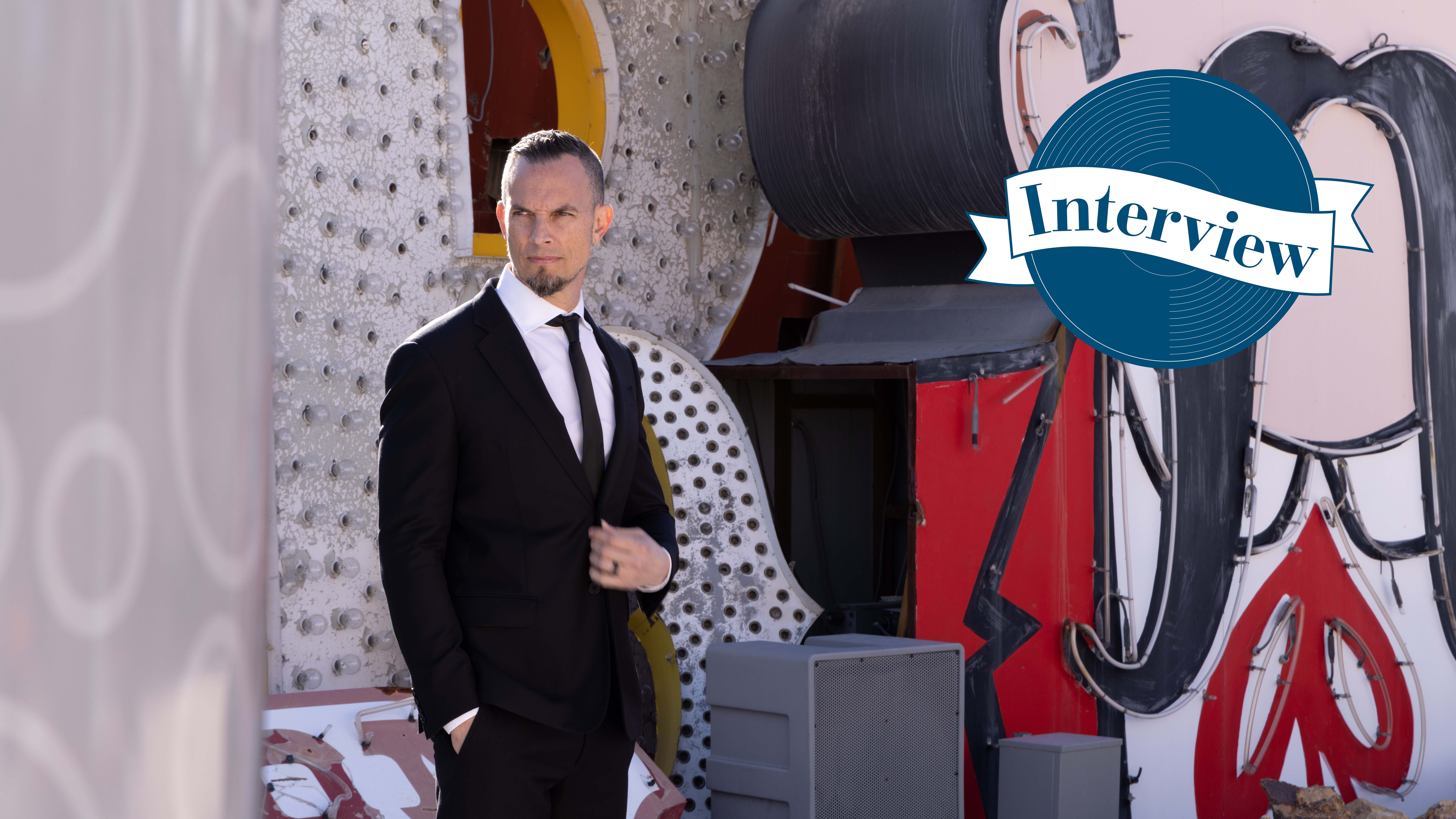
In typical prolific Mark Tremonti style, he's talking to us about one new album while recording another. As he takes a break from piecing together songs for Alter Bridge's seventh record with the band and producer Michael 'Elvis' Baskette in Orlando he's with us to discuss music that's very different to his usual hard rock; singing the songs of Frank Sinatra with musicians from the late legend's orchestra.
This fulfilment of his ambition to walk in the footsteps of Ol' Blue Eyes on the forthcoming Mark Tremonti Sings Frank Sinatra album isn't just a huge musical surprise and success (and he even painted the album's cover art), it's part of something much bigger in the musician's legacy. Mark's Take A Chance For Charity organisation seeks to encourage artists, actors and athletes to step outside their comfort zone for a good cause. And for Mark that cause isn't just close to home – it's part of his family life.
His infant daughter Stella Monroe Elizabeth Tremonti has Down Syndrome and all proceeds from the Mark Tremonti Sings Frank Sinatra album will go to the National Down Syndrome Society (NDSS). A charity that works tirelessly to support families and advocate for people with the condition.
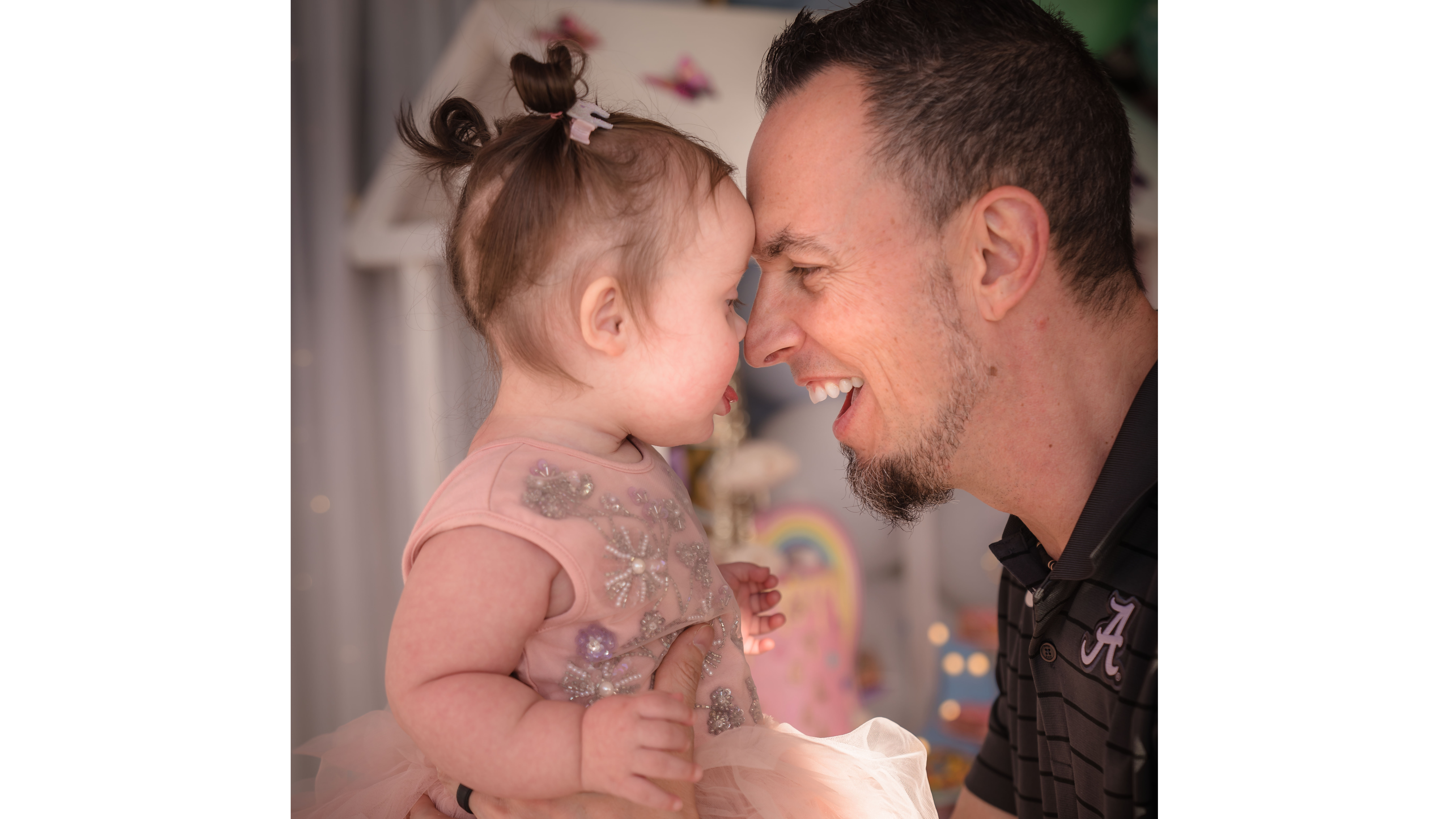
But just before we discuss how Mark became a crooner and new charity founder, how about some insider information on this new Alter Bridge record currently being cooked up…
"We started the day before yesterday," confirms Mark. "Yesterday we did one song and the first day we did two songs. We're in preproduction right now. We did a bunch of writing and now we're going through getting the final arrangements down and beginning to record."
Can you reveal anything about the album at this stage?
"I think we're going to try and do a 12-song record. That's it so far – we're in the baby stages so we'll see how it turns out. It's so early on I can't tell you what kind of record it's going to be yet. Today we're diving into my favourite song I brought to the table so I'm excited about it."
Get the MusicRadar Newsletter
Want all the hottest music and gear news, reviews, deals, features and more, direct to your inbox? Sign up here.
A post shared by 𝐀𝐋𝐓𝐄𝐑 𝐁𝐑𝐈𝐃𝐆𝐄 (@officialalterbridge)
A photo posted by on
I've loved Sinatra for my whole life
Where did the idea for a Sinatra album start?
"Well, I was really, really obsessed with Sinatra… I've loved Sinatra for my whole life. But for the past three years, I think I've really been on a deep dive and I remember one night, I was on YouTube, looking up all kinds of old stuff. And I decided, I want to sing just like him, I want to try my best and, and, and practice almost like you practice the guitar and just imitate it as good as I could. And I didn't know what I was going to do with it.
"After about a year and a half or so, I'm was getting pretty comfortable with it and I want to do something with it. But I just didn't know if it had a place in my career. So then, when my daughter was diagnosed with Down Syndrome, I felt like, you know what, there's almost a reason why I'm doing this right now. And all the stars kind of aligned.
"Sinatra was a very charitable guy – he raised over a billion dollars for charity. [So I decided] I'm going to do it in the name of charity, I'm going to do it to raise money and awareness for Down Syndrome. And when I told my manager Tim [Tournier] about it, he said, 'You know, my guitar teacher growing up was Dan McIntyre who was Frank Sinatra's touring guitar player.'
"So it was just one of those crazy things that everything just worked out so perfectly. And the toughest thing was just getting the project approved by the Sinatra family because they don't [usually] allow you to use his name or likeness on albums unless it's some big important deal, like Tony Bennett, or Michael Bublé. They are kind of the guys. So it's just it was a huge honour for me to be able to do it with his name."
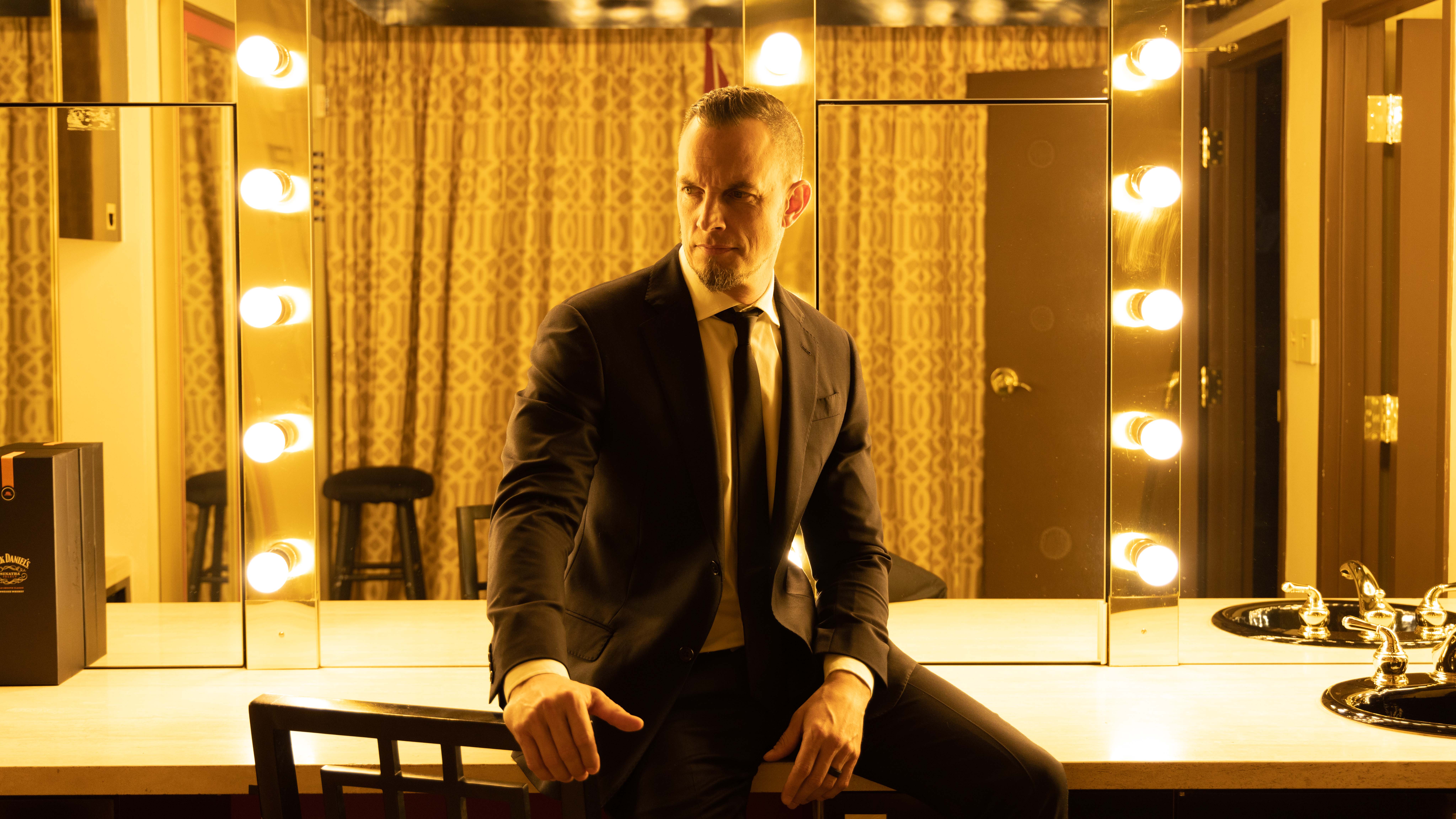
If I am going to put my neck on the line, I'm not going to embarrass myself
Was there a process of convincing Dan and fellow Sinatra band member Mike Smith that you were up to the job and did you have to do a lot of preparation?
They never heard me sing until I was in the studio. Tim had lunch with Dan and Mike and they asked him, 'Can your boy sing?' And Tim had never heard me sing Sinatra but responded, 'Yep, he can do it'. He just believed in me as as artist. I think over all the years, he knows that if I am going to put my neck on the line, I'm not going to embarrass myself. So he believed in me.
"I actually sent him an audio clip from my phone of me singing Luck Be A Lady. So that convinced them to really push with the guys and say, I was the right guy, the right fit. And once we got in the studio, Mike Smith pulled me out in front of the whole band.
"I've got a video of that first moment and I think there's a little teaser that in the video [further down the page] where he's like, 'Alright Mark, come sing with us.' And that's the first time I sang for him. And after we did the first session, a lot of the guys came up afterwards and were like, 'I didn't know what to think of this'. You know, rock n' roll guy crooning, but they were all very complimentary. They're like, 'Wow, this is gonna be great.' And then, at the end of the sessions they were saying that we've got to take this on the road. So you never know."
Nobody online that was teaching how to sing Frank Sinatra sounded like Frank Sinatra
Hearing your take on these songs, it actually makes a lot of sense for you to do this album because you've got that power in the lower register. But this kind of transition into big band singing can't be easy, so how did you rehearse?
"I did a deep dive and I searched everywhere online for any kind of resources for people's giving tips on [Sinatra's] pronunciation or where he got his lessons from or if he got trained in this and that. I found this book called Tips On Popular Singing that he wrote with his his vocal teacher [John Quinlan] when he was younger. But I didn't get much from that other than I noticed that when he said certain vowels, the shape of his mouth would line up with what he'd said in that book.
"So I tried to follow that a little bit, but nobody online that was teaching how to sing Frank Sinatra sounded like Frank Sinatra. It would be like this tenor singing Frank Sinatra and it just didn't make sense. So I decided, I'm just going to dive in and learn myself by ear. And I remember Eric [Friedman], my guitar player in Tremonti, was like, 'Dude, nobody's gonna teach you how to sing this stuff like you're going to teach yourself by just diving in'. He saw how obsessed I was with it.
"To be honest, the most beneficial thing for me was my son. My younger son Pearson had soccer practice about 45 minutes away [from our home]. And he was on two soccer teams for a while. So he would have three hour practices sometimes. I'd have a good four hours at least of sitting in a car because during COVID, we weren't allowed to go on the field. So I'd sit in the car, break out my laptop; I would write down the lyrics and spell it how he pronounced it, I would move it how he phrased it. I would imitate how he breathed and I would just study my ass off and sing the whole time.
"I'd sing for four hours straight and Pearson would have to listen to me sing all the way to soccer practice and all the way home for soccer practice. And I know that by the time I'd be going home, I felt good about it. Every day I'd start and think, oh, you got some work to do. And every day I'd go home and feel, alright, you got some work done today. Every day I felt better about it. And I would just pick my setlist and every time I'd feel like I got a song down pretty well I'd put it in the book and move on to the next song."
Is that the book of notes we can see in the video?
[Mark shows us the book of his Sinatra song lyrics and notes next to him] "It's always right here. I'm in my studio and this is right on my on my studio desk. So I got my Ol' Blue Eyes folder."
It's really interesting that you did this without any kind professional vocal coach coming in.
"I didn't really have training on the guitar, either. I think if you just have that patience and that passion about something, and you really just dive in, and listen to all the little nuances. That being said, not everybody is going to be able to sit down and sing Frank Sinatra. If I sat down and tried to sing Prince, I wouldn't be able to do it. Or if I sat down and tried to sing Michael Jackson, I wouldn't be able to do it. Finding somebody that you're passionate about that has your vocal range, which is sometimes hard to find.
"And Frank Sinatra was perfect for me. His vocal range and my vocal range… he gets a little lower than I get. But when he sings his high stuff, there's not a lot of moments were I'm really stretching too much. You know, I think some of the highest notes that I sing on this record are maybe the end of Fly Me To The Moon. There's not a lot of stuff really stretching up there. And that's what I like about it – it's smooth, and it's it's confident. Frank wasn't a pusher."
Hopefully I can do Volume Two of this
There's a lot of control and subtlety, though. With the pronunciation, do you think there's a misconception when it comes to the challenge of this style of singing, that people overlook the details of that?
"Oh, absolutely. Yeah. And then controlling your vibrato, knowing exactly where you're going to do it and what vowel sounds you're going to be making when you're pulling off that vibrato and where you're going to breathe out. A good example of Frank Sinatra is his breath control is told he covers Old Man River. And there's a note in there and when he hits the word 'jail', he just goes on forever. And then he vibratos at the end of it and does a little thing. He does this great little tail to that piece that if you don't have your breath, there's no way you're going to do it.
"A lot of these guys that I recorded with would see him do that live and it's crazy how he held his breath that long. You have to prepare for it, like when I sing along to it I just know that I've got to take a massive breath before that part. But yeah, listen to him do Old Man River in Til The Clouds Roll By – it's a feature film where they had all these different singers come in and he sang in that. That was one of the videos that got me thinking, I want to sing like this incredible performer. Just such a great performance. So I'll always be a fan. I'm going to keep on digging on and hopefully I can do Volume Two of this."
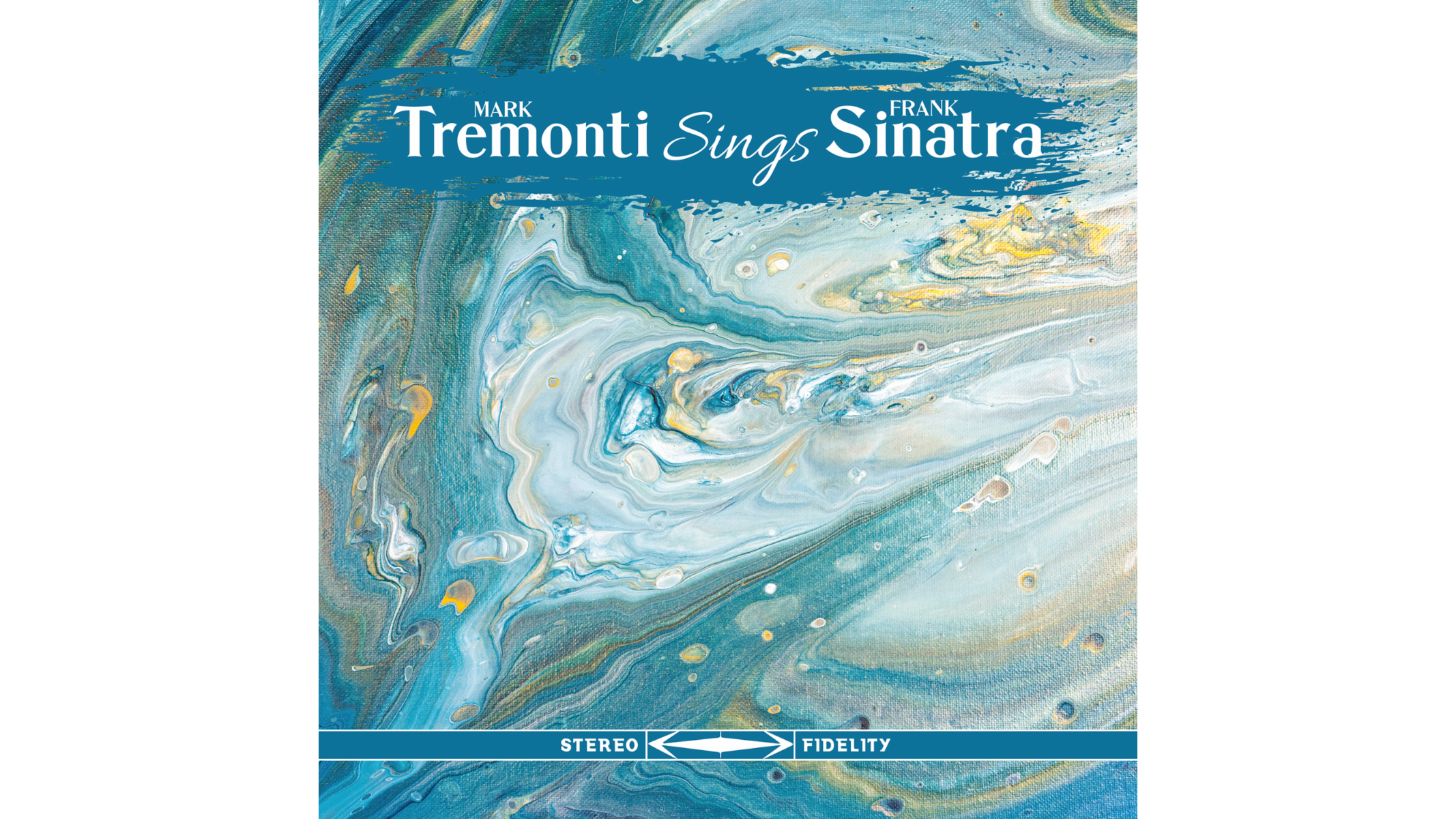
Was Mike Smith able to give you any kind of insider kind of tips from his time with Sinatra?
Well, he, he gave me this right here [shows us a tea sachet]. Right before I sang for the first time, he gave me a cup of tea. And he said it was exactly what Frank would use when he would sing. It was so surreal – the amount of lemon and everything in there. So that was awesome.
"I think at first Mike really wanted to kind of hold my hand through the process, but I think he then realised. There was a second in recording when Mike said, 'The old man wouldn't put vibrato on this particular word'. And I was about to record it and I was so used to singing it that way. So I asked, 'Well, can we pull out the recording because I've meticulously gone over all this stuff'. And we played it back. He said, 'Oh, you're right'. Because he's used to seeing it live night after night after night. I'm used to doing the recorded version, so I'm singing it like the recorded version. He's hearing it live.
"I appreciate it all. He wanted to get it right and legit. I think he just realised that I did my homework. I wasn't winging it. I was singing it exactly the way I planned to sing it."
I didn't want to have a whole record full of his most well known songs
Where did you draw the line between what Sinatra did on these songs and putting your own spin on them?
"I tried to stay as close as I could to what he did. And I think any any spin you hear me putting on it is just not being able to do exactly what Frank did. So I tried to get as close as I possibly could. And then he has so many different versions of some of these songs. You know, somebody might think I'm putting my own spin on something when I'm just singing another version he did. I'm just taking all his performances and putting them into a song. So I guess that is putting a spin on it.
"But to be honest I just love what he did. Some of these songs that he sang were done by a lot of other singers, but he was the guy to me that really sang them right. So I wanted to learn exactly how he sang it and just enjoy doing it."
And for the first time in your career, this isn't guitar-driven music.
It just never came into my thought process because when you're doing the big band thing, you have to really listen out for the guitar. And a lot of these songs… in I've Got You Under My Skin it's not a prominent instrument. But when we recorded the song Wave, that song was very prominent on the guitar.
"I didn't want to have a whole record full of his most well known songs. I wanted to do some deep cuts. But when I decided to do My Way, I thought, if I'm gonna do this song, it's got to be different and we've got to put our own spin on it. So that was the only song on the whole record that we got rid of all the charts. Everybody just kind of sat in the room and felt it out.
"I sat with Dan McIntyre, and he just started playing parts and played it three or four different ways. And we ended up going through the first verse and chorus section with maybe no percussion and then built it and then broke it down, and just made a lot of dynamics. I think we had piano, drums, bass, and guitar and then all the winds – all the wind instruments were put in after after the fact."
It's more of a low key but emotive approach to it. And Wave is really interesting too. There's a really low note in that from you…
"Oh, yes. That's that's the only song on the whole record that I might not perform live because that note is only happens certain times of the day for me, you know, it's it's a very tough one. It's actually better early in the morning for that low note. So if I did concerts at 10 in the morning, I'd be great. But at night, it might not happen."
So live shows are on the cards?
"We're trying to put a show on May 14 here in Orlando [this show at The Abbey has now sold out]. Every time we do an Alter Bridge record, or Tremonti record, we do listening parties where people will come in from all over the world and hear the record before it comes out. Then we'll do a live performance of these new songs. And so we'll do the same thing here. We've we've already reserved a room and it's a small theatre. I was talking to Tim yesterday and he's like, 'Man, what if this thing sells out really quickly? Because it's not a huge room'. I said, 'Well, we could do it like Sinatra did back in the day, he would go to the Paramount Theatre and just do a show at this time, and then another show at a later time, and all on the same day.'
"And this is the kind of music that you can do like that – it's not destroying my voice to sing, because it's in my range. It's not doing the rock thing where I'm killing my voice. So I could do the multiple show thing."
Even if you know the melody, if you don't really hone in on every word and every syllable of that word, you're not going to get the most out of your vocal
Have you felt that this project will benefit your singing with Tremonti and Alter Bridge?
"Absolutely. I was just talking to Myles [Kennedy, Alter Bridge vocalist /guitarist] about that yesterday. In the past I would write melodies and I'd write lyrics and just go in the studio and sing them. I wouldn't think too much about how I'm going to approach it, I would just do it by whatever emotion I had at the time. But now I will write down my lyrics and do the same thing I did with the Frank Sinatra stuff – really, really hone in on exactly where I'm going to throw the vowel sounds, how I'm going to breathe and how I'm going to throw vibrato and where I'm not going to throw vibrato. And just so when you sing it, you can sing it very confidently.
"You would think it would make it more robotic, but it sounds freer, because when you're singing it, you can then have that confidence in that word you're singing and then put your own spin on it as you're going. Instead of just kind of falling down the stairs, singing something that you haven't practised. Because even if you know the melody, if you don't really hone in on every word and every syllable of that word, you're not going to get the most out of your vocal. So now I know and I never thought of that in the past."
I realised that he had multiple personalities when it came to his singing
What did you learn about Sinatra through through this process, even as a fan going in? Was there anything that gave you a kind of a new appreciation?
"Oh absolutely, I think he was just such a passionate guy with what he wanted to get into. When it came to singing, and he just was unstoppable. Then wanted to be an actor and he became unstoppable at that as well. One thing I wanted people to know, through this project, was that he was such a philanthropist. He raised a billion dollars for charity. And he was the type of guy that would not let people know when he would donate certain things and wanted to do things under the radar. Some people don't talk about that and I think through this project, hopefully a lot more people will realise that. The big tough, charismatic Frank Sinatra that everybody knows was also a softy and really did a lot of good things.
"I realised that he had multiple personalities when it came to his singing. In his early days it was very airy, very light with almost a smile on his face when he's sang. He's happy with happy songs like The Song Is You and All Or Nothing At All. Even I'll Never Smile Again – a sad song but the same kind of airy approach.
"Then I feel like there was that midpoint in his career where he kind of fell off for a while, for I think about three years his career kind of went down the tubes for a little bit. And then when he came back with this new style. He partnered up with Nelson Riddle and it was a more mature kind of a sound.
"I love them both. I think both both of his sounds were great. And I think in in his older life, [he had] an even more mature sound. If you listen to Send In The Clowns or something, listen to how confident and just how smooth and how much space he leaves and how just commanding he is. I think there were so many areas, and there's so much music – he recorded over 1,400 songs. And not only that, if you dig in deeper you can see all the television shows that he hosted, where he would sing nonstop, and so many other songs, you could spend a lifetime and still find new stuff that Frank Sinatra sang and performed on and acted in. So it's an endless resource. If you're a fan of Frank Sinatra, you're not going to run out of things to check out."
Whenever I'd sing to her, she'd smile
There's some great candid clips of you singing Sinatra to your daughter Stella in the video [above] introducing the album and charity. It that adds a whole deeper element to this.
"There were early clips of when she was a little itty bitty baby. And then my wife wanted to show some clips of her older now because little babies are cute, but when they're nine / ten months old they get adorable. So I sent my friend John, who was putting the video together, some clips, and then I realised every day I sing her The Song Is You – The Song Is You is the song I sing to her when I want her to smile. So I sang Frank Sinatra to her all the time when I was practising.
"My wife would get up at 6.30am and get our kids off to school, then I would take the eight o'clock shift, and I'd get up with Stella and spend three hours in the morning with her and I would practice singing Sinatra, and she enjoyed it. I would sit there playing Sinatra songs and singing them to her. So whenever I'd sing to her, she'd smile.
"I would send my friend John all these clips and just kind of show people this wasn't something that I did on a whim, this is something that's part of our daily lives. I must have 70 videos of me singing to her. Those are just four or five of the videos. I could have gone on for a whole hour-long session of her smiling. I sing [Mark starts singing I Hear Music] and she smiles."
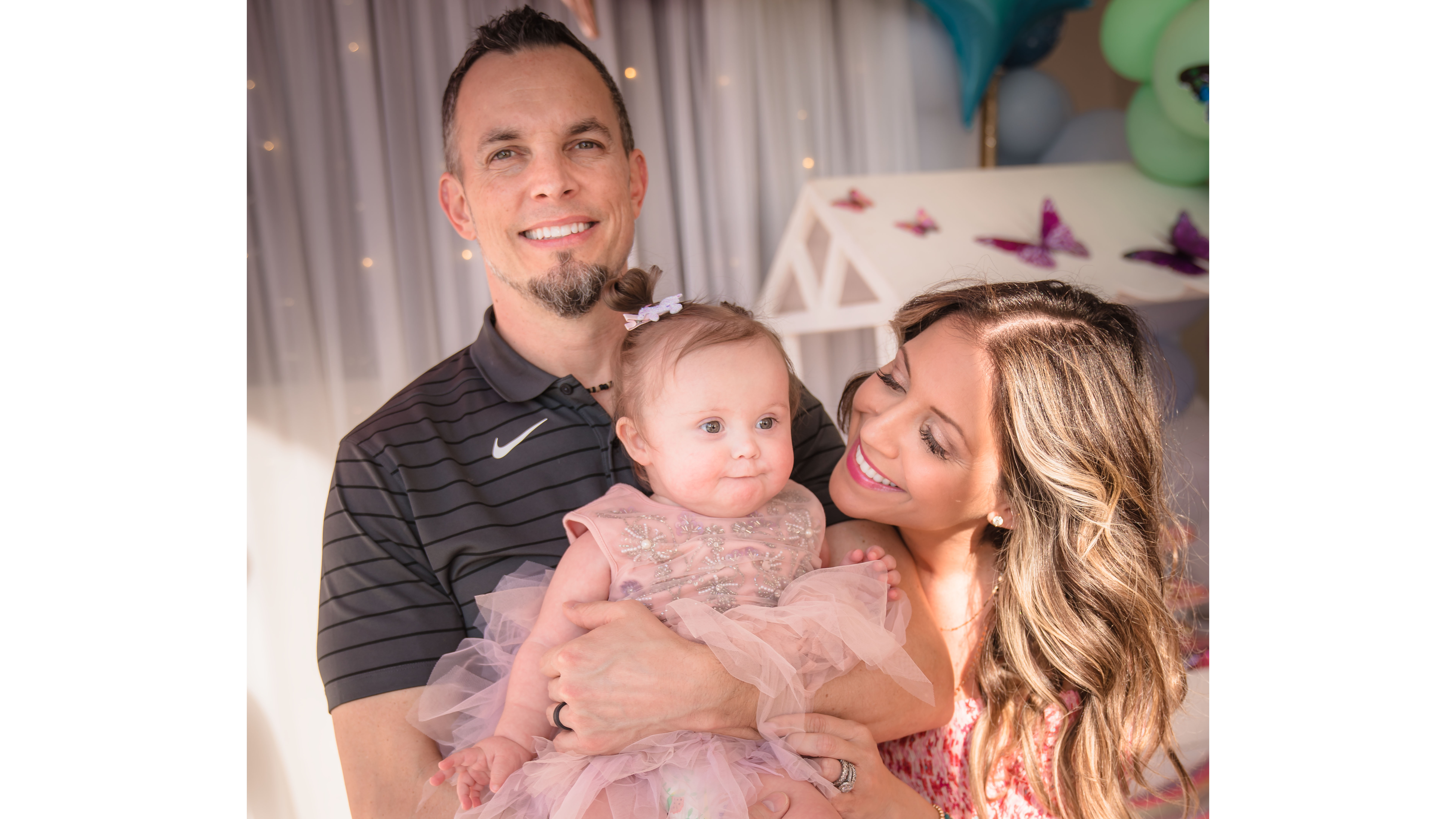
That was the worst, most difficult time in my entire life. Hands down
How is Stella doing after her heart surgery earlier this year?
"She's doing so well. You know, that was the worst, most difficult time in my entire life. Hands down. When you don't know what's gonna happen, when your little baby's about to have open heart surgery where they have to bypass her heart, it was just terrifying. Then, two days later, we're in the hospital and she's smiling. She's got a smile on her face and she's laughing. Her chest was all tied together with wire… she's a tough little girl. She's awesome. The doctor says she has a stronger chest now than other kids because because it's got more support."
All the proceeds from this album will be going to the National Down Syndrome Society. Can you tell us a little about the work they do?
"The NDSS is the largest of the Down Syndrome charities and they bring awareness – they have all kinds of support systems in place. There's no cure for Down Syndrome, and that's very clear, but families who have somebody with Down Syndrome have to keep an eye on physical therapy, speech therapy, occupational therapy. People who don't have insurance, there's a lot of heart issues for a lot of kids with Down Syndrome. You'll see that they have the big scars on their chests just like Stella did.
"I couldn't imagine a family not having insurance going through what I went through. There are independent programmes where the NDSS house people with Down Syndrome so they can be apart from their families and have a job, live on their own – there's whole communities that have that. There's local programmes where they teach kids with Down Syndrome to ride bikes. And you have all these people that volunteer their time.
"Just the other day, my friend put on an event to try to raise a million dollars. I think they raised $300,000 and there's so many things that that they do. It's a very supportive community and they help so much with so many events all year long. These families need a lot of help. It's not something for people to be afraid of, having a child with Down Syndrome, but it's definitely a responsibility and it's great to have the community to support you."
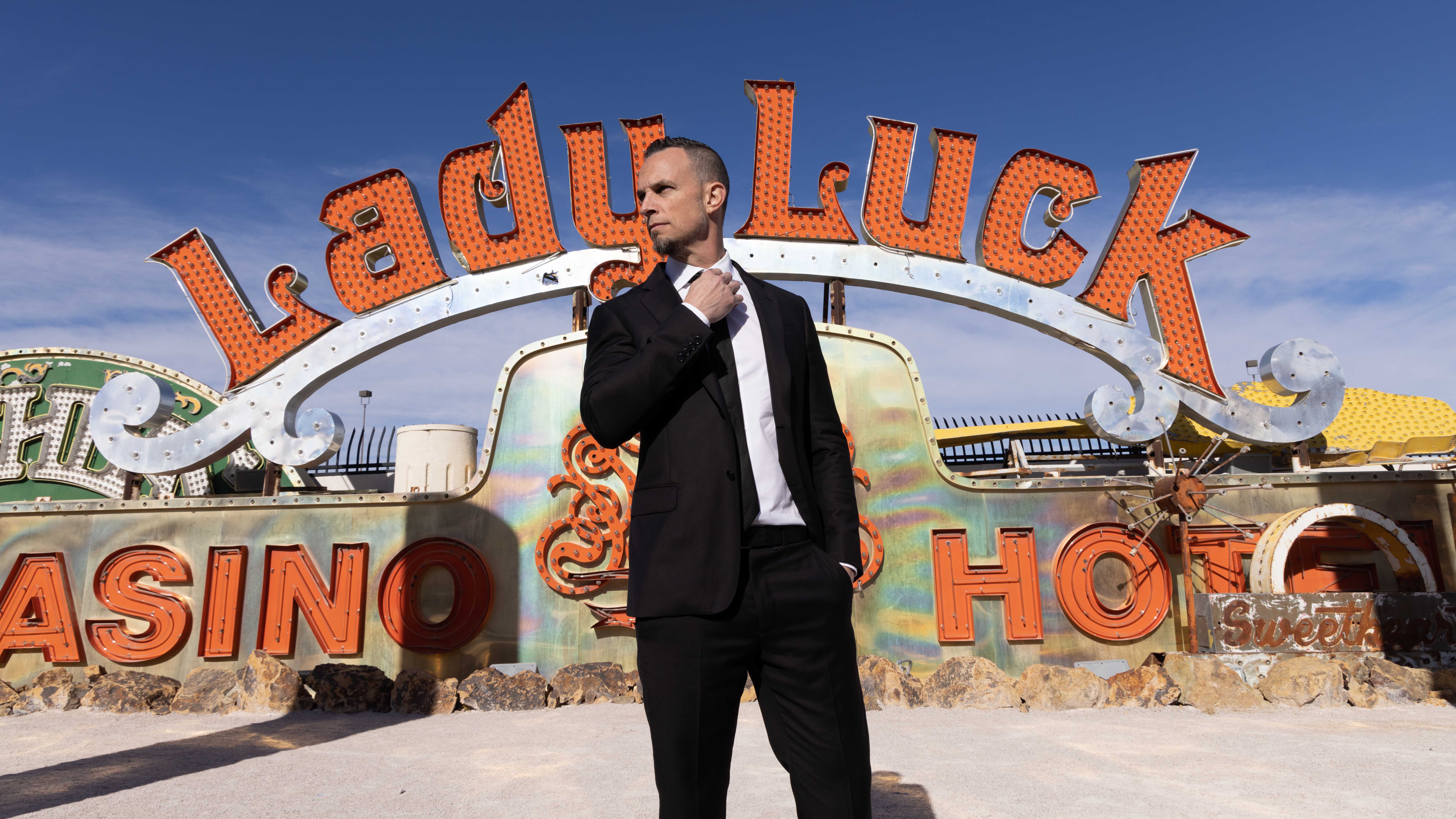
I've been really, really busy keeping up with trying to connect with as many people as possible to do this
This is also the first project for your new Take A Chance For Charity endeavour. You've thrown the gauntlet down with this for artists, actors and athletes to follow your lead.
"I've been really, really busy keeping up with trying to connect with as many people as possible to do this. Yesterday I was on the phone with a handful of people about it. I don't want to say all their names yet, because if some fall through I don't want people to be disappointed, but here's at least 10 projects right now we're talking about going forward with.
In a perfect world everybody's raising money for Down Syndrome, but Take A Chance For Charity is for people to do something that nobody would expect them to do to raise money for charity. And I'd like it to be a charity that they really, really believe in. So there's a story behind it and they can talk about how important it is for them to raise money for that reason; maybe a family member needed help or whatever the organisation it is.
"Obviously, for me, it's Down Syndrome. But right now, all the people we're talking to are going to go through NDSS because we already have that relationships set up where if you donate it goes straight to them, and all the legalities and all that stuff are taken care of. So if we're going to do a different charity, we just have to make that next step. It sounds easy on the outside; let's raise money for charity. But when you do it there's a lot of red tape that goes into it. For us it's great to partner up with NDSS and for them to make it easy for us. So when people donate, they can get that tax write off, feel good about what they did and it's all nice and easy through NDSS."
The album Mark Tremonti Sings Frank Sinatra is released on 27 May. For more info visit tremontisingssinatra.com and preorder the album here.

Rob is the Reviews Editor for GuitarWorld.com and MusicRadar guitars, so spends most of his waking hours (and beyond) thinking about and trying the latest gear while making sure our reviews team is giving you thorough and honest tests of it. He's worked for guitar mags and sites as a writer and editor for nearly 20 years but still winces at the thought of restringing anything with a Floyd Rose.
“Wendy Carlos is able to build precisely the sound that she wants”: Watch synth pioneer Wendy Carlos in the studio, working Moog magic back in 1989
“It was originally called Everybody Wants To Go To War, which I knew didn’t work. When you’re a songwriter who doesn’t like the lyric, the song dies”: How Tears For Fears created an ’80s mega-hit









